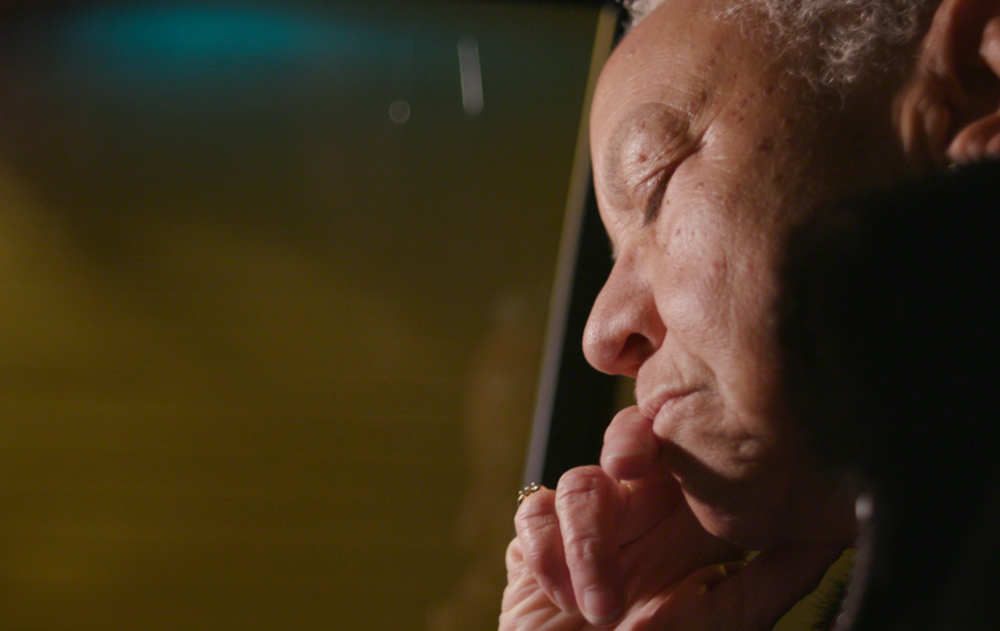“Anyone in this room with talent should be lonely,” Nikki Giovanni says, giving a hard truth to a room full of kids in “Going to Mars: The Nikki Giovanni Project.” A poet with a knack for long looking at things in a different way than most, Giovanni breaks down Rudolph the Red Nosed Reindeer, asking why he never stood up for himself amongst all the other reindeer when he stood out and comes around to a rather profound observation on a level of her given audience, likely imparting a lesson for life when she tells them, “You’ll find someone as lonely as you are and build community.”
As Giovanni can be seen on her tour for her book tour for “A Good Cry,” you can see the community she’s built with independent thought, able to fill up the Apollo with adoring fans, but nonetheless happy to tell everyone once on stage that she’s not very friendly. That can’t possibly be entirely true as she radiates a warmth throughout Joe Brewster and Michele Stephenson’s endearing profile of the iconoclast, but she remains unapologetic, with her latest book alluding to the fact that after raising a son of her own, paying off her house and her car, she feels as if she can finally allow herself to cry every now and then when it’s a symbol of her freedom in all respects. Provocatively enough, that comes to include her memory, though she looks to abandon it before it abandons her as she ages and almost as soon as “Going to Mars” begins, she says what she remembers is starting to be a choice she makes.
Those decisions might be easy for her, having a rough childhood with an unkind father and growing up in Cincinnati when the neighborhoods were still red-lined, but Brewster and Stephenson surely had difficult ones to make in terms of what to cover in an extraordinary life, when their subject went to Fisk College where she was classmates with John Lewis and Diane Nash, having to fill up her first major poetry reading with 100 people so as not to pay for the room – helped out by her next door neighbor Morgan Freeman, among others, and raising her own son Thomas to be his own person. Yet they find a novel approach to putting her sprawling life in perspective, having passages read from her past work by Taraji P. Henson in the instances she may no longer remember, showing how her words from the time continue to endure such as in the aftermath of the assassination of Martin Luther King Jr. and tie the narrative as it transcends time and space to her belief that Black women should be the earth’s ambassadors to the universe, seeing travel to other planets no different than the middle passage and thinks given all they’ve endured, no one is in a better position to ask the right questions.
Giovanni’s poetry makes the case itself when it becomes the sonic equivalent of rocket fuel as it’s weaved throughout “Going to Mars,” celebrating a true artist who may insist she never had any interest in movements as a free thinker, but has led one of her own with passion over five decades as she’s seen her words cut across generations with Brewster and Stephenson ensuring they’ll reverberate for many more.
“Going to Mars: The Nikki Giovanni Project” will screen again at the Sundance Film Festival on January 22nd at 6:30 pm at Redstone Cinemas in Park City, January 24th at 6 pm at the Sundance Mountain Resort Screening Room and January 27th at the Library Center Theatre in Park City. It will be available virtually from January 24th through January 29th.




